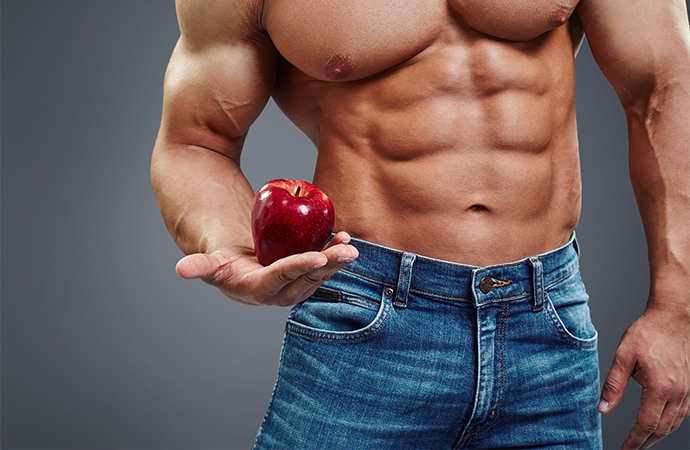Fruits are delicious, healthy, and help build muscle. Yes, that’s right. In bodybuilding circles, people dismiss fruits due to their sugar content but with careful choices, one can boost those gains. Fruits are rich in potassium, carbs, vitamin C, and antioxidants, all of which help in building muscle. Eating fruit to build and maintain muscle mass is all about timing.
With the right guidance and diet plan, certain fruits can help to optimize the results you are looking for when on a fitness pursuit. Here are some of the best fruits to improve fitness or put on muscle.
- Kiwi
- Banana
- Watermelon
- Blueberries
- Oranges
- Apples
- Cheeries
1. Kiwi
The fruit is known to be one of the best fat burning natural sources out there. Kiwis contain more vitamin-C than any other fruit. Vitamin-C is the most potent antioxidant which helps remove fat off your body. The vitamin is required for proper oxidation of fatty acids which makes them far easier to work off. So it’s time to shed that flab and look fab!
2. Bananas
Bananas are perfect for carb-heavy diets and are best before workouts to resupply your body with glycogen. The fruit is renowned for its ability to help muscles maintain their size. Bananas come packing with an incredible amount of potassium which is good for muscle contractions and is a critical electrolyte for the body all around. Bananas are possibly one of the most common fruits to be consumed with a protein shake, but going full natural with it works too.
3. Watermelon
This tropical fruit isn’t as straightforward as the rest when it comes to nutritional benefits. Watermelons help regulate blood flow and contain citrulline, which is responsible for being converted to arginine and nitrous oxide. Watermelons are a good source of fruits if you ever consume them as an assortment, but are not the most vital to have on a daily basis. Once more, be careful about how much sugar you are consuming when feasting on this fruit.
4. Blueberries
Blueberries are power-packed super-fruits that are primed for muscle growth. They contain a huge number of anti-oxidants that help in gaining muscle mass. Antioxidants protect against ‘free-radical’ attacks, which we are vulnerable to after weight training. The key to building muscle and strength is recovery – The faster we can recover the faster we can grow muscle.
5. Oranges
As children, oranges were possibly the signature citrus fruit to go for when pursuing a life of healthy eating -and for good reason. Oranges are jam-packed with Vitamin C and are particularly viable before your workout due to the nutrient preventing nitric oxide from being broken down. Alternatively, you could consume the fruit after your workouts and enjoy the fruit for its stellar antioxidant properties. The fruit is tasty and easily made into juices – so having it anyway you like wouldn’t stray too far away from its natural nutritional value.
6. Apples
If fruits had a mascot, apples would be it. From nursery adages to in-depth nutrient charts, none can deny how versatile and valuable this fruit can be. Apples contain polyphenol which helps to increase your body’s strength. While this effect may seem enticing, it is important to note that the fruit still is extremely high in sugar and should not be consumed in excess. Like almost any other fruit, juicing it naturally is a good option, while baked apple paste isn’t too bad of an idea either. Be warned that apple crumbles or apple pies don’t count as progress!
7. Cherries
For such a small fruit, cherries have some of the strongest flavors among all fruits. This is why taking more than a handful of them can make it a chore to consume. With the correct amount, cherries are a treat and contain anthocyanin, which is responsible for muscle recovery and helps to reduce inflammation. As we know, muscle hypertrophy is all about recovery and this fruit fits the bill in every way possible. Cherries work best on their own and should be eaten sparingly.
Managing Your Intake
While sugar cravings can partially be satisfied with fruits, it is important to note that sugar is still sugar and should not supersede the number of carbs taken. It is good as a snack for pre and post-workouts, and never functions as a meal substitute or a snack to be eaten throughout the entire day. Ultimately, gauging the amount of how much you should consume each day depends on your calorie intake cap. Balancing your fruits with oats, nuts, and even vegetables can make for a far more fulfilling role if you are not the type to snack.
Source: rawpressery and Ezra Gideon/ Dhaka Courier
A global media for the latest news, entertainment, music fashion, and more.





